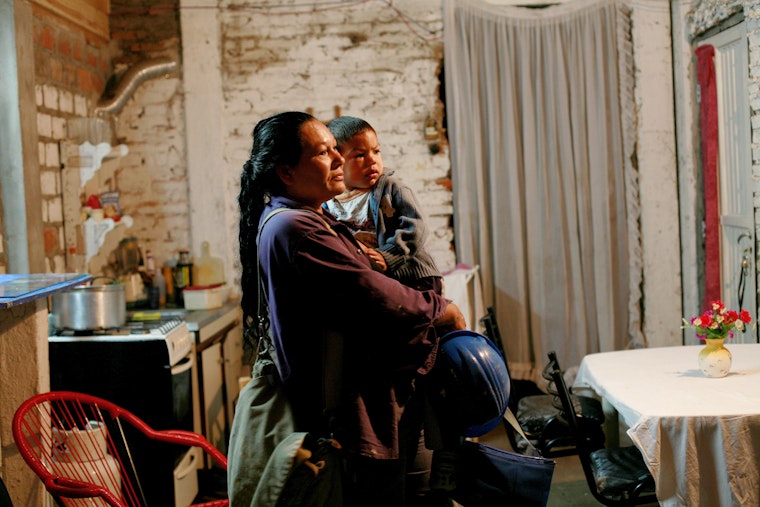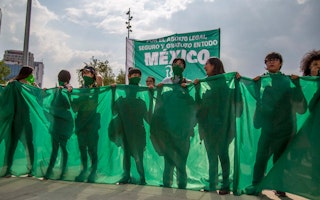The Women’s Movement Is Leading Reform in Argentina
By Marina Durano

In 2015, under the banner call of #NiUnaMenos (Not One Less), thousands of Argentinians, mostly women, marched towards the Plaza de Mayo in Buenos Aires to seek justice for all the women who died under brutal circumstances. Argentinians, like many in Latin America, call the phenomenon femicidio, highlighting the female victim whose murder is often, though not exclusively, perpetrated by an intimate partner.
As #NiUnaMenos grew into a movement, Argentinian feminists expanded their initial calls to end abuse and violence to include other women’s rights issues, like the legalization of abortion. The country’s growing economic crisis is also disproportionately harming women. In Argentina, women are overrepresented among the poorest 20 percent of the population. Due in part to higher unemployment rates, large gender pay gaps, and other economic disadvantages, women are facing higher barriers to resiliency and survival. (Indeed, the movement has also linked increased anxiety and stress to a higher probability of being abused—as well as a lower probability of feeling able to leave an abusive environment.)
Not only is the movement calling for policies that support the care work that women need to perform, so as to reduce women’s time poverty; it also hopes that public and private investment in the care sector will expand employment opportunities. Researchers have suggested that stronger investment in the care economy could create 600,000 jobs and increase the wages of those who perform care services. An integrated federal care system, therefore, could counter the economic downturn by boosting domestic demand. That means that building a care economy offers possibilities for strengthening women’s economic autonomy and enhancing the nation’s economic performance.
The new administration of President Alberto Fernández is signaling that it wants to meet the movement’s expectations. Fernández already established a new Ministry of Women, Gender, and Diversity, which includes an Office for Care Policies that will coordinate government efforts in this area. Elizabeth Gómez Alcorta, a well-known feminist human rights lawyer, currently runs the ministry. Alcorta and her team will be working with their colleagues in the Ministry of Social Development, led by Daniel Arroyo, who has also been looking at various aspects of an integrated care system.
Argentina is set to chart a path that few countries have taken and the women’s movement demands this change. The initial steps the government is likely to begin with are low-cost approaches, but they can have a large impact on women’s time and could enhance the value of their work. Among the policies under discussion, according to Natalia Gherardi of Equipo Latinoamericano de Justicia y Género, are equal pay measures, expanded parental leaves, the legalization of abortion, education to prevent gender-based violence, and comprehensive sexuality education.
While most economists will be more satisfied with a promise of higher productivity, many Argentinian women are aiming for gender equality. “In order to talk about autonomy over our bodies, we need to have economic autonomy,” said Mercedes D’Alessandro, the newly appointed national director for gender and economics, who has close ties with the Argentinian feminists. Without a doubt, the Argentinian women’s movement will continue to mobilize to ensure that government officials are held accountable to their political commitments.
Until November 2021, Marina Durano was a senior program officer with the Open Society Women’s Rights Program.


